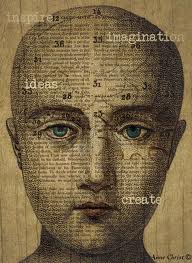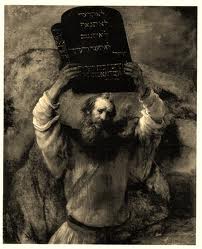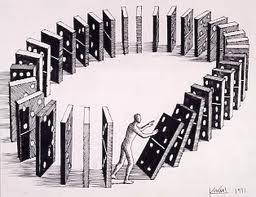One Thought
We are,
And with our first breath
Have plunged out of the pure white
Into a kaleidoscope of perceptions
We are,
And with our first sensations
Almost overwhelming us
Our moments the only experiences
We are,
Without thought, and without time
Moments are long and full of wonder
Until we have thoughts and define
We are,
Breath, movement and now thought
We begin to taste the world
And are captivated by it....
We become,
And “I” is born

Developing ourselves is one of the worthiest pursuits one can have. Not only do we benefit from it, everyone does as well. A saying that has a great deal of truth is - “be the change you want to see in the world”. The problem for many is that they have a hard time finding the wherewithal to do so because they see too many issues to deal with and become overwhelmed by them. A great many talk about change, but too few do anything to change their reality. This is not because they do not want to and I believe this even holds true for true even those who deny they need to or who think they have it together already. Still, there is a way past even these blocks.
I think I can say with some certainty that we all struggle, at times, with the baggage left behind from our reactions to experiences. This is the nature of our existence. These reactions establish the “I” referred to in the above poem. Further, we become accustomed to our pain, so much so that it can become like a nurturing companion, one that helps us justify our reluctance or unwillingness to do something about it. Yet, there is a way to overcome such resistance and it starts with a simple notion: no matter how right you feel, no matter how justified you feel, no matter who you feel is to blame, accept the simple notion that you could be wrong.
Without the idea of one’s own fallibility change is certainly difficult. When we believe our truths without exception, we isolate ourselves. I know for I have done this myself. Yet, I found a way to make change in my own life and the benefits have been unbelievable!
How did we get to where we are now? Well, our lives take the paths, complete with twists and turns, for a reason. None of us has as much control over them as we would like to believe. That our lives take us where they do is, in the simplest terms, the consequence of what we brought in with us, the circumstances of our birth and the experiences we have as a result. Yet, even though we do not have the level of control we believe we do, we are not powerless nor do we lack the ability to influence the path we take. The question then becomes, if this is so, how do we accomplish this?
The idea that we could be wrong is essential and can help us, for it renders us open to self-examination, though this idea alone is not sufficient. What can make a difference it to find one thing we can focus on, one thing we can empower with the strength of spirit and mind? You may ask what such an idea would be, well, perhaps some of my story, along with some of what I have learned, will give you some things to consider as you ponder your own shadows.

Years ago, the emotional issues that came out of my early life experiences challenged me. Their reflections cast long shadows over every aspect of my life. The shadows main source was my relationship with my father. My father had been very callous and at times “deliberately” hurtful. I am sure he thought that he was doing what was best, yet it caused me to react in ways that only made things worse. His challenges, like mine, were reflection of unresolved issues; however, I thought he should be able to overcome or at least mitigate them; after all, he was the adult and my parent. Regardless of this, I expected better of him and so blamed him for my problems.
Time went on and the friction only increased. I felt unloved, uncared for and victimized by him. A significant part of my reaction resulted in my becoming isolating from those around me, including me. Being a natural empathy, this proved to be very tough to deal with. The more I hurt the more I blamed my father for his actions in my regard. I felt his actions were vindictive and mean spirited and believed he did not love me, at least not as a parent should. I could feel these emotions coming from him, yet because of my own feeling of hurt and angry and my lack of skill in knowing what I was “perceiving”, I was mistook his surface emotions for his core “feelings”.
My perception was that his actions caused my pain, indeed, they were a significant factor, and I spent a number of years as a captive of that pain. Fortunately, pain was not all I felt and it did not rule all aspects of my life. I relied on my sense of self, that being a belief in my intelligence and my natural empathy. My natural empathy did not get lost in the noise of life as it does for most, as my experiences had “proven” to me that I had skills that others did not, ones that no one could take from me.
The combination of these two gifts also gave rise to arrogance. Though arrogance is not a redeeming quality, it provided me with the insulation that I would need to pursue knowledge of things beyond the physical aspects of my life, ones my father thought to be nonsense. In part, it was my reaction to his denial of empathy, which to him was nothing more than flights of mental fantasy that led me to pursue more knowledge about it. In many ways, this was my lifeline.
Raised with a solid understanding of science, I accepted the idea that there are rules to how things work. This led me to believe that what I had previously referred to as magic (that which had no scientific explanation, such as my empathy and telepathy) must also follow rules, albeit ones I did not know at the time.
This led me to reading a variety of books, on religion, philosophy, metaphysics and even ethics. While they did not provide me with answers to all my questions, they did give me a broader perspective and ideas that I could pursue on my own. By that, I mean the aforementioned books did not give me what I needed to correlate what I perceived to anything formal. I was not about to be swayed by what I perceived as dogma, hence I was stuck halfway between science and spirituality.

I began to meditate in my late teen years and though I struggled in my personal life, it gave me a place to touch that which I could not find in all the chaos. The big change for me happened pretty much by accident, at least it seemed that way at the time.
A friend had several books that one could not find in a bookstore (remember, this was before the internet existed). This gave me exposure to two books in particular, written by C.W. Leadbeater. One was “The Inner Life” by C.W. Leadbeater, a member of the Theosophical Society who as was credited with “discovering” old Jiddu Krishnamurti at Adyar (when he was 14 years old). In the book, he states:
“One of the most serious of the many misconceptions which we have inherited from the dark ages is that what is called “sin” is a perversity to be met with punishment and savage persecution, instead of what it really is, the result of a condition of ignorance that can only be dealt with by enlightenment and education. It may be objected that in daily life we constantly see people doing what they must know to be wrong, but this is a misstatement of the case. They are doing what they have been told is wrong, which is quite a different matter. If a man really knows that an action is wrong, and that it will inevitably be followed by evil consequences, he is careful to avoid it.
A man really knows that fire will burn him; therefore he does not put his hand into it. He has been told that the fire of hell will burn him as the result of a certain action-- say playing cards on a Sunday-- but he does not really know this, and therefore when he fells the inclination to play cards he does so in spite of the threatened consequences. It will be found that every one who does wrong justifies the wrong action to himself at the time of its commission, whatever he may think about it afterwards in cold blood. So I say that sin as ordinarily understood is a figment of the theological imagination; what really exists is an unfortunate condition of ignorance which often leads to infraction of the divine Law.”
(Theosophical Publishing House, 1917)
While not religious and wary of religious dogma, this made a great deal of sense to me. What struck me about it at the time was the emphasis on ignorance. If my issues were the result of ignorance that meant that I could find my way past them by learning to understand, as he put it “what really exists is an unfortunate condition of ignorance which often leads to infraction of the divine Law”.

The religious connotations in the term “divine Law” did cause some consternation until I considered it more fully. Being a thinker, I believed that there is one way “things” work, and not many, therefore if there were rules, or laws for physics there would have to be rules for consciousness as well. Further, that whatever rules did exist they would certain apply to all, that there were not different rules for Buddhists, Hindu’s, Christians or even atheists, for example.
All of these texts had some references to rules, which I began to see as the “divine Laws” as mentioned by Mr. Leadbeater. This led me to conclude that ignorance resulted in consequences to us, just as putting one’s hand into fire results in a burn. I had always known that thoughts were something and not just the result of brain chemistry and neurons firing, what evaded me was how this all worked.
What I found in the book “Thought Forms” (by C.W. Leadbeater and Annie Besant) provided the other piece of the puzzle. In the book, they state:
“Every thought gives rise to a set of correlated vibrations in the matter of this body, accompanied with a marvellous play of colour, like that in the spray of a waterfall as the sunlight strikes it, raised to the nth degree of colour and vivid delicacy. The body under this impulse throws off a vibrating portion of itself, shaped by the nature of the vibrations—as figures are made by sand on a disk vibrating to a musical note—and this gathers from the surrounding atmosphere matter like itself in fineness from the elemental essence of the mental world. We have then a thought-form pure and simple, and it is a living entity of intense activity animated by the one idea that generated it. If made of the finer kinds of matter, it will be of great power and energy, and may be used as a most potent agent when directed by a strong and steady will.”
(Theosophical Publishing House)
The combination of these with what I knew already helped me to connect the dots. It had already occurred to me that it was illogical to view actions as being independent of the thoughts that gave rise to them. One does not randomly do something, they are the result of what one thinks and then chooses to do, even if we are not consciously aware of the making the choice.
The addition of the notion of ignorance of divine Law added the thought that the issues I face could be the result of my ignorance of whatever these Laws might be. Finally, the idea that thoughts were something tangible meant that my thoughts must be the source of the consequences I experienced.
I already believed, contrary to what my father believed, in cause and effect or action and reaction as I now know it. Hence, I concluded that when what we think is not in harmony with the Laws of consciousness then there were negative consequences. I likened it to concepts out of physics such as energy fields and wave theory as well as the idea of constructive and destructive interference. Those thoughts that were in harmony led to constructive results and those that were not in harmony led to destructive vibrations, which I likened to such things as negative results.

I saw thoughts as a root cause of what I was experiencing. At the same time, I still did not know what those Laws were. What I did know was that there was only one-way “things work” and as I was not about to believe one set of ideas about it over another, such as Buddhist concepts of right and wrong over Christian ones, I searched for the commonality between them.
Throughout this time, the struggles in my life were like a huge knot, one that seemed to defy unravelling. Of course, I was aware of psychological ideas and that whatever the mind was it was certainly fluid, and not a fixed and rigid thing. I learned this lesson through an experience I had as a teenager.
The experience I refer to occurred when I was about sixteen, at which time my mother had made macaroons for my father. Both my brother and I loved them and so I took a couple even when I knew I was not to. My brother, on the other hand, ate most of the tray. Our parents were not amused and since, at the time, I was already on thin ice I admitted to eating one or two but not the tray. I did not want to punishment, so I made up a lie, that being that I did not really like coconut so I would not have eaten more than one or two.
My parents were suspect of my story, but accepted it. To make it stick I had to act on my lie. When my mother bought a coconut I passed on having some, the same went for some macaroons she made. A couple of weeks later I went to have one and found that I no longer enjoyed the taste. In a couple short weeks, I had gone from loving coconut to not liking it at all.
Memory of that, combined with what I had read, told me that thoughts truly had power. At the same time, I still felt somewhat helpless to fix what was going on in my life. That said, the combination of these ideas led me to think that if I could somehow reduce the destructive interference of my thoughts it would have a positive effect in my life.
Now, not just any thought(s) would do and while I did not know exactly what the Laws of Consciousness were, it seemed apparent that negative thoughts certainly were not helpful. Due to my mathematical background, I came to liken my mind to a forest and my thoughts as the trees in that forest. A high-level, conceptual thought is the “parent” of lower level ones, just as the single idea of repose leads to all the multitudes of objects to repose on.
It struck me that if I could find and change a high-level thought it would affect all the thoughts that come out of it. My mind was really a mess, like a knotted ball of string, and I knew that while could not fix it at that time, I could start the process with such a thought. This is because I believed that a fair amount of the entanglements of my knot would be consequences of higher-level thoughts I had.

The thought I searched for came to me in a meditation. It was the first inklings of what I wrote about in the piece titled “Ripples in My Pond”. During that meditation, I came to know that I could loosen the knot if I merely reduced the number of negative thoughts I had, regardless of what kind of negative thought it was. It also came to mind that merely thinking whatever thought it was would not have a significant impact unless it was clear, simple and I was firmly committed to it. Commitment was critical for without it whatever thought I had would have little impact in my life. It would also need to be a thought that was not in conflict with other ideas I had. This is important, for such conflicts act as blocks that weaken the effect.
No longer able to handle the mess of my life I made a decision. That decision is one that I felt and not just thought. To me, my challenges seemed overwhelming and though I knew I had to do something all I could seem to do was one thing. What I chose to do was commit myself fully to the idea of having one less negative thought every day. I did give myself a slight out, in that the idea was progression and not immediate change. That out was if it was a bad day I extended the time line to have one less negative thought “this week” versus the previous one or this month versus last month. And I stuck with it. I not only thought about it, I started to meditate on it, reinforcing it as if it were all that mattered and my life depended on it. This allowed me to embrace it fully and make it part of my daily routine.
Do not underestimate the power of a single thought or idea. That one thought I following through with had a huge impact, though it took several years for it to manifest. While I continued to struggle, that thought had a ripple effect. I began to find it easier to be less negative, less judgmental. This permitted me to apply both of these to myself as well resulting in my generating less emotional baggage each day - the knot started to unravel. I have not relinquished this thought either, for there is always room for improvement.

I hope my story tells you that even though you find your life a challenge and you may have issues that seem overwhelming, they can be resolved. We all know that old saying, "the journey of a thousand miles begins with one step", but what is that step? What this says to me is that no matter what difficulties we have or how many, if we can find one single idea of a high enough level to empower and then stick with, the ripples it makes will have a profound impact on our lives. And if even one thought seems to much right now then I suggest one at least try to plant the intent to find that one thought!
The thought you choose will likely be different from mine, but this does not matter. What matters is that you have one, and not many, that does not conflict with other ideas and beliefs you have, that aligns with the Laws of Consciousness and that you can and do commit to it. I am not referring to a casual commitment, for these have little impact; the thought must be one that you feel with your whole being - this brings the power of your will to bear into your life and change will come.
© 2011 Allan Beveridge
References:

